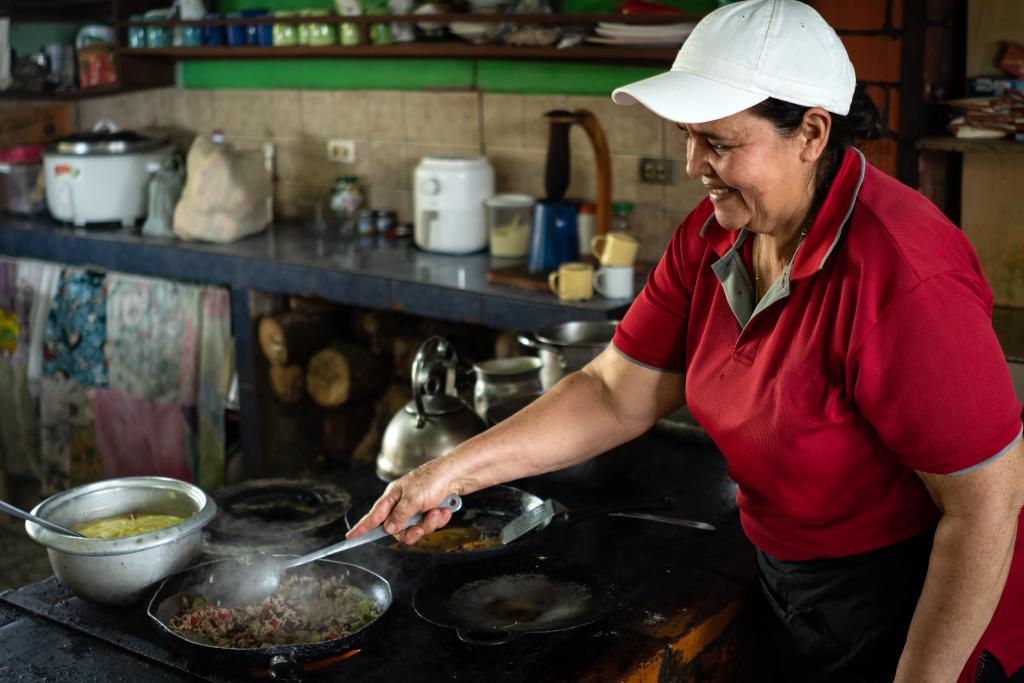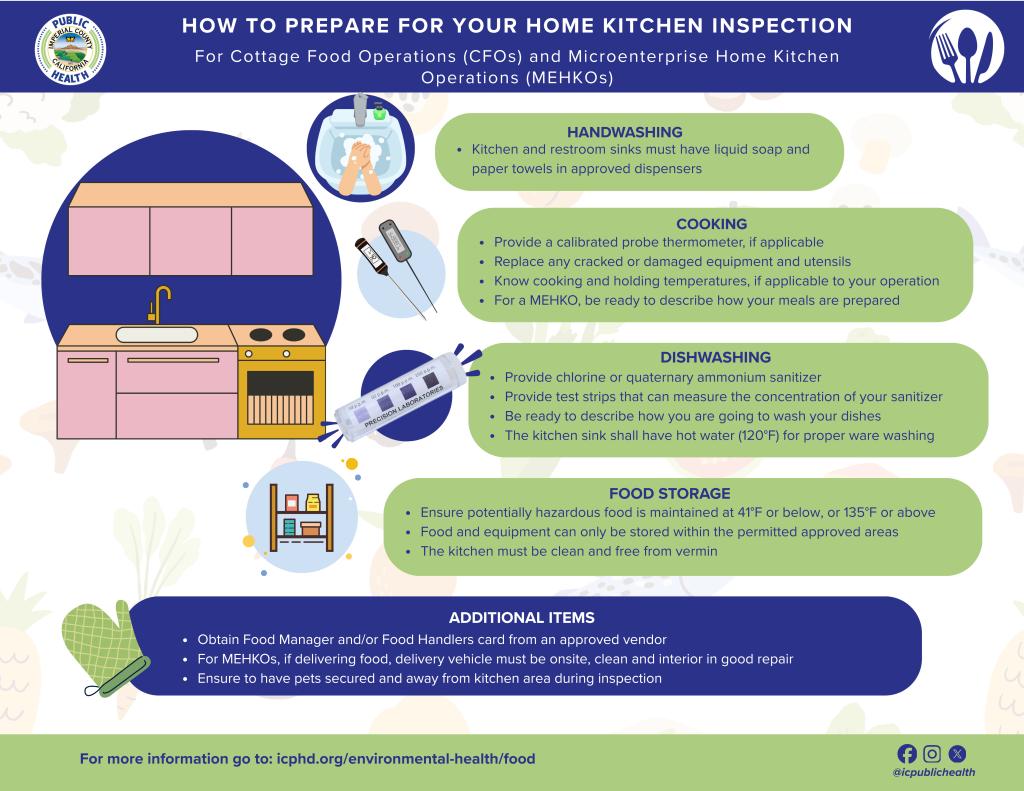Microenterprise Home Kitchen Operation (MEHKO)
Application Forms and Guidelines
Please note that application forms and guidelines has moved. Microenterprise Home Kitchen Operation (MEHKO) Application Forms and Guidelines.

Microenterprise Home Kitchen Operation (MEHKO)
A Microenterprise Home Kitchen Operation (MEHKO) is a new type of food facility, which has been permitted by Imperial County Environmental Health to be operated in a private home. Below are quick facts about the MEHKO requirements, limitations, and how to get started.
- Food may be delivered. Food may not be sold from a vehicle.
- A permit issued from Imperial County Environmental Health must be obtained prior to operating a MEHKO.
- No more than one full-time food employee,(not including a family member or household member) may work at the MEHKO.
- The MEHKO operator shall successfully pass an approved and accredited food safety manager certification examination. Also, any person(s) involved with the MEHKO must obtain a food handler certificate.
- Food shall be prepared, cooked, and served on the same day.
- People can dine at your home or take out.
Learn the difference between MEHKO vs. Cottage Food
Food Business ForkTip
Review the tables below to see key differences between Microenterprise Home Kitchen Operation (MEHKO) vs. Cottage Food. Download this infographic for your reference. MEHKO vs. CFO Comparison PDF
What type of food? | Food is prepared, cooked, and served on the same day. Limited to 30 meals per day, and no more than 90 meals per week. |
|---|---|
Delivery | The meals can be consumed at your home, picked up, or delivered by you or your family member. Food cannot be sold to another business. |
What is not allowed | Food cannot be sold from your vehicle. MEHKOs cannot cater. |
How to sell | Internet food service intermediaries (IFSI) or an app may be used, as long as the business information is provided to client in case of a complaint. |
Maximum sales | Sales are limited to maximum annual sales of $100,000 (gross annual expenses). |
What type of food? | Shelf Stable Baked goods (without cream, custard, meat fillings, or that require refrigeration after baking), candy, coated and uncoated nuts, canned/bottled jelly and jam, dehydrated fruit or vegetables, tortillas, granola and more. |
|---|---|
Delivery | Class A permit allows for direct sales. Class B registration permit allows for both direct sales and indirect sales from a third-party retailer that holds a valid health permit. |
What is not allowed | No Fresh fruit garnishes, cheesecakes or other items needing refrigeration |
How to sell | You may make transactions via the phone, internet or any other digital methods. A direct or indirect sale may be fulfilled in person, via mail delivery, or using any other third-party delivery service. |
Maximum sales | Class A current gross annual sales at $75,000. Class B current gross annual sales at $150,000 |
Application Forms and Guidelines
Please note that application forms and guidelines has moved. Microenterprise Home Kitchen Operation (MEHKO) Application Forms and Guidelines.
How to Prepare for your Home Kitchen Inspection
Contact
El Centro, CA 92243
